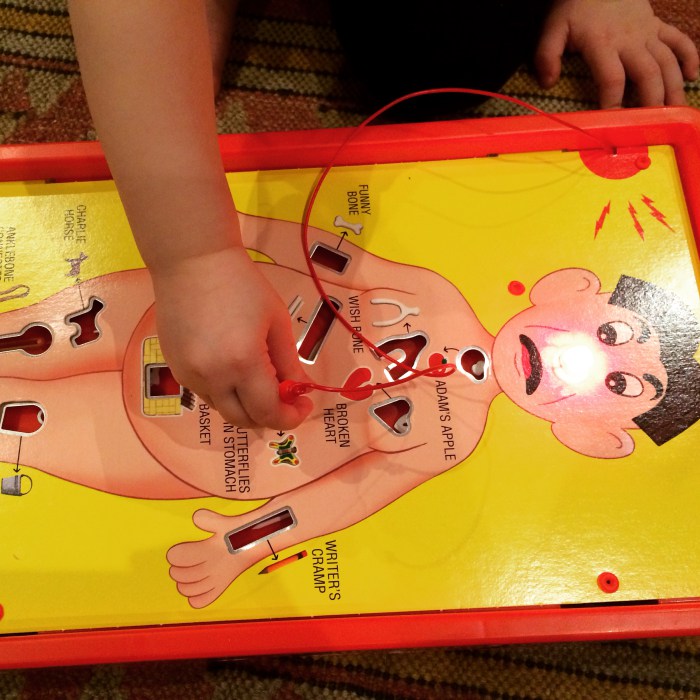Nerd alert: I love family game night. So you can imagine how excited I am that my children are getting old enough to play board games with me. We started with the classics and incorporated some new games that friends have shared with us. We are keeping our repertoire small though so that we can work on practicing the games we have before trying too many different kinds. I am excited about revisiting some of the classics from my childhood and sharing those memories with my kids. We have yet to get into money games, as my oldest is only four-years-old, but that is our next step.
Beyond enjoying a low-tech, at-home evening with my children, I look to these games to help teach them a few lessons. Initially, playing a game was mostly an exercise in patience, where I focused on getting my then 3-year-old to take turns and follow rules. Typically he yells “I want to win,” before we even start. So he has learned to delay gratification and to follow through with a game despite setbacks (i.e. sliding down a chute in Chutes and Ladders). Then, we were able to focus on some of the lessons inherent to playing the games, such as numbers, counting, colors, and shapes. Furthermore, many of these games challenged his eye-hand coordination and dexterity, whether that is inserting a disc into the Connect Four framework, moving a game piece precisely onto a square, or manipulating a “bone” out of the Operation man. I try not to make the whole game into a lesson or lecture though because I still want it to be fun!
A few minutes into our first game I realized that I needed to take a parental stance on winning. Do I let my preschooler win? Do I allow him a little cheating to win? Do I teach him that you do not always win and how to cope with losing? Ultimately I decided that since my children are still young (2 and 4 years currently), they do not need to play games strictly by the rules and should win more often than not. So, if my son needs to spin a 4 to win and he decides to take a few spins to get that outcome, it’s ok. If he miscounts the squares that his piece moves so that he happens to land on the finish line, then so be it. However, I usually win at least one of the games each night. I think it is important that they see that they do not always win and that they learn to cope with the feelings that come with losing. We do not dwell on it though and end things on a positive note.
During rainy days and cold, dark Winter evenings, board games are our favorite ways to have quality family time at home. If you are looking for inspiration, here’s what we are playing:
Scholarly articles on this topic:
Ramani, G. B. and Siegler, R. S. (2008), Promoting Broad and Stable Improvements in Low-Income Children’s Numerical Knowledge Through Playing Number Board Games. Child Development, 79: 375–394. http://www.ncbi.nlm.nih.gov/pubmed/18366429
Whyte, J.C. and Bull, R. (2008), Number games, magnitude representation, and basic number skills in preschoolers. Dev Pscyhol, 44(2): 588-96. http://dx.doi.org/10.1037
[I have no affiliation with the above articles, games or their makers. All opinions are my own. A version of this post was published previously here: http://mommycallblog.com/2016/01/11/family-game-night/http://mommycallblog.com/2016/01/11/family-game-night/]
This post comes from the TODAY Parenting Team community, where all members are welcome to post and discuss parenting solutions. Learn more and join us! Because we're all in this together.

